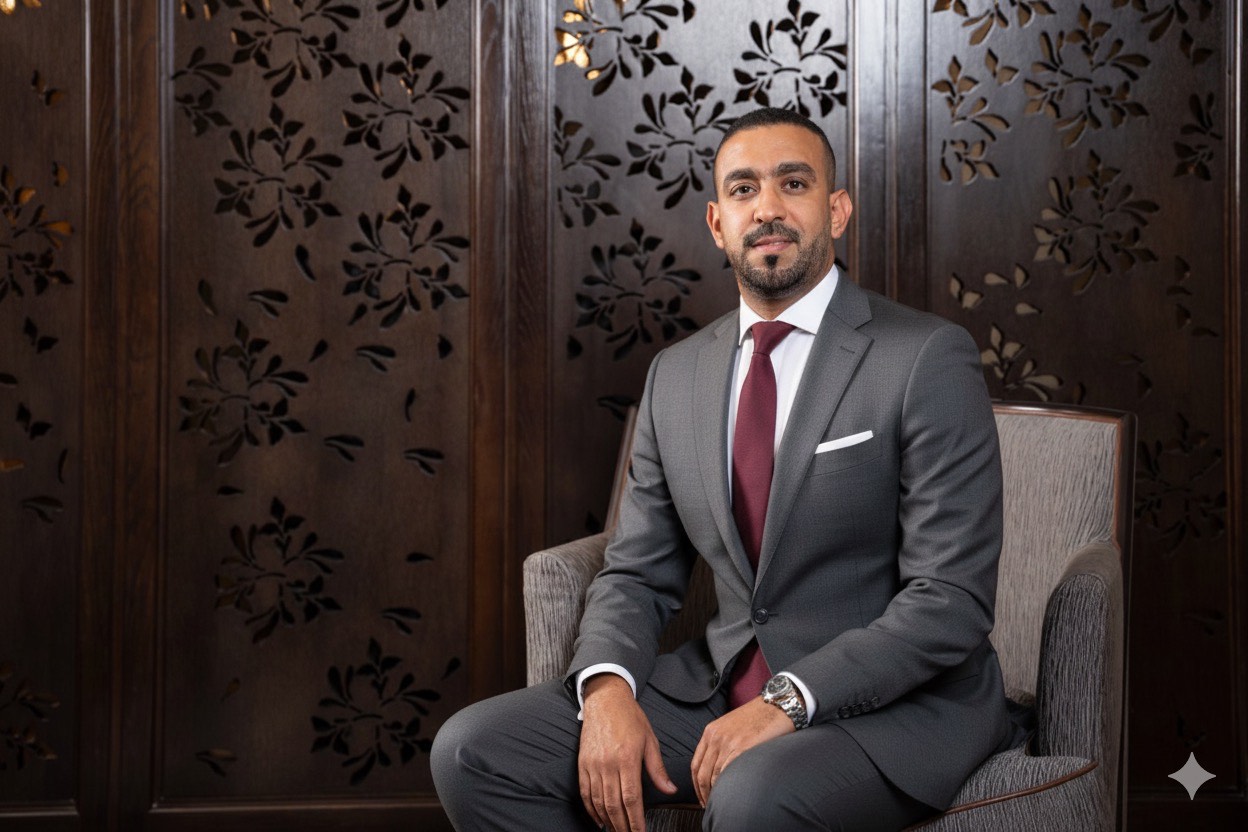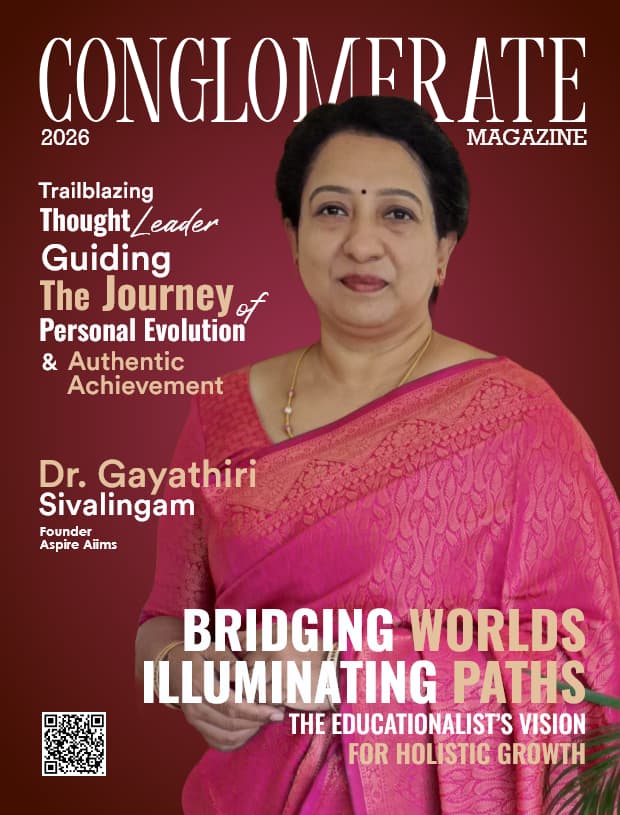From Moroccan Roots To Global Hospitality Excellence
In the world of luxury hospitality finance, where numbers meet nuanced guest experiences, few professionals embody the perfect blend of analytical rigor and operational intuition like Said El Moudni. His journey from the hospitality-rich landscapes of Morocco to directing financial operations across some of the world’s most prestigious hotel brands tells a story of curiosity transformed into expertise, passion channeled into performance.
“Finance has always been my passion, but growing up in Morocco, hospitality is a lifestyle,” Said reflects on his unique positioning in the industry. “Having the combination of two in a career doesn’t make me feel like going to work – it’s just doing what I love to do.”
This philosophy has driven over 15 years of distinguished service across luxury hospitality giants including JW Marriott, Ritz-Carlton, and Hyatt, culminating in his current role as Director of Finance at Rixos AL Mairid Ras Al Khaimah. But Said’s story is not merely one of career progression; it’s a testament to how curiosity, when properly channeled, can reshape entire financial frameworks within the hospitality sector.
The Power Of Perpetual Curiosity
What sets Said apart in an industry often driven by standardized procedures and established protocols is his fundamental approach to problem-solving. From his early career days, three questions have guided his professional development: Why do I have to do certain things? How can I improve or simplify the process? What is my work’s impact on overall operations?
These seemingly simple inquiries have evolved into a sophisticated methodology that has consistently delivered exceptional results. “I always have curiosity in me; I didn’t know that this curiosity would help me to grow,” Said explains. “These questions led me to strive for answers, understanding the people around me, being humble enough to be taught by experienced ones, and as the days go by, my curiosity transitioned into answering others’ curiosity.”
This evolution from questioner to mentor represents more than personal growth; it reflects a fundamental shift in how financial leadership can function within hospitality organizations. Where traditional finance roles often focus on control and compliance, Said’s approach emphasizes collaboration and continuous improvement.
Architecting Financial Transformation
Said’s tenure as Director of Finance at JW Marriott Hotel Muscat stands as a masterclass in strategic financial management. Under his leadership, the property achieved a remarkable 13.9 percentage point increase to the bottom line, along with a +10% improvement in profitability. These results weren’t achieved through conventional cost-cutting measures but through a sophisticated integration of financial discipline and operational excellence.
The transformation strategy centered on five key pillars that redefined how finance could partner with operations rather than merely monitor them:
Data-Driven Forecasting and Revenue Optimization formed the foundation. Said’s team enhanced forecasting accuracy by integrating real-time business intelligence tools and aligning closely with sales and revenue management. This allowed the property to optimize room pricing, improve banquet profitability, and maximize ancillary revenues with unprecedented agility.
Smart Cost Management Without Compromising Guest Experience required a nuanced understanding of where efficiencies could be gained without impacting service quality. Rather than implementing across-the-board cuts, the team focused on negotiating supplier contracts, implementing zero-waste initiatives in F&B operations, and optimizing energy consumption through sustainability programs.
Cross-Departmental Alignment positioned finance as a business partner rather than a control function. By working hand-in-hand with culinary, rooms, and engineering leaders, Said’s team identified efficiencies that each department could own, building accountability and sustaining results across the organization.
Crisis Leadership And Resilience Building
The COVID-19 pandemic provided the ultimate test of Said’s financial leadership philosophy. As Multi Property Financial Controller for three Marriott properties in Doha, he faced extreme drops in revenue and constant uncertainty. His response revealed the depth of his commitment to both financial sustainability and human capital preservation.
“My focus became simple: keep the business afloat and protect as many jobs as possible,” Said recalls. “That meant tough calls – tightening costs, renegotiating with suppliers, and freezing any non-essential spending.”
However, even in crisis, Said’s strategic mindset identified opportunities within challenges. With fewer guests, the properties could fast-track maintenance projects that would have been disruptive at full occupancy, setting up stronger foundations for recovery. Communication became everything, with Said working closely with department heads to ensure alignment and transparency about forward-moving strategy.
The pandemic experience reinforced three critical lessons that continue to guide Said’s financial decision-making: liquidity is strategy, not just survival; transparency builds trust; and people are the true capital. These principles ensure that every financial decision balances profitability with resilience, sustainability, and legacy.
Redefining Leadership In Hospitality Finance
Said’s approach to leading finance teams reflects his broader philosophy of human development over mere process management. Having led teams of up to 25 professionals across diverse cultural backgrounds, he has developed a leadership methodology that transcends traditional style-based approaches.
“I wouldn’t say it’s a leadership style, as style can be overrated, changed, or even copied over time,” Said explains. “To me, leading a diverse team while creating connection individually and commitment towards them is always powerful.”
This philosophy recognizes that while knowledge and skills are vital in shaping professional individuals, they can be gained through perseverance and hard work. Molding inner personality, however, requires connection and commitment. Said’s approach involves challenging team members without raising competition or comparison, focusing instead on helping each individual become their best version.
The results speak volumes: reduced pre-opening expenses by $1 million at Dream Hotel Doha, successful oversight of complex property conversions into Marriott’s portfolio, and consistent development of finance professionals who carry forward his principles of strategic thinking and ethical practice.
Balancing Profitability With Purpose
In luxury hospitality, the tension between financial discipline and guest-centric service models requires sophisticated navigation. Said has developed a philosophy of value creation rather than cost cutting, recognizing that guest experience is the ultimate driver of revenue in luxury hospitality.
“Financial discipline doesn’t mean austerity; it means channeling investment toward experiences that increase spend per guest,” Said notes. His approach focuses on strategic cost management in areas invisible to guests while protecting front-of-house quality, revenue-enhancing initiatives that align with brand promises, and cross-functional collaboration that ensures every financial decision supports the luxury experience.
This methodology has enabled Said to oversee revenues exceeding $70 million while maintaining the service standards that define luxury hospitality. The approach ensures that profitability and guest delight reinforce each other rather than existing in conflict.
Embracing Technological Transformation
Said’s vision for the future of hospitality finance is intrinsically linked to technological advancement and data analytics. He sees technology not as support tools but as transformational forces reshaping financial management across the industry.
“Real-time decision-making through advanced BI dashboards and predictive analytics allows finance teams to forecast demand, optimize pricing, and monitor profitability in real time,” Said explains. “This agility is critical in a volatile global market.”
His framework encompasses automation of routine tasks through RPA and AI, freeing finance leaders to focus on strategy, and personalized guest insights that link financial and operational data to correlate spend patterns with guest preferences. This evolution positions finance teams as strategic data hubs, integrating financial intelligence with guest experience and sustainability metrics.
Sustainability As Strategic Investment
Said’s approach to sustainability in hospitality finance challenges traditional cost-center thinking. He positions environmental and social responsibility as strategic investments that drive long-term profitability through integrated ESG calculations, cost savings linked to environmental impact, and access to green financing options.
“Sustainability is no longer a cost center; it is a strategic investment that drives long-term profitability,” Said emphasizes. His methodology evaluates sustainability projects not just on immediate payback but on their ability to reduce risk, attract eco-conscious travelers, and secure favorable financing.
This approach demonstrates that sustainability and profitability are mutually reinforcing, with guests increasingly loyal to brands that act responsibly and owners rewarded with stronger, more resilient assets.
Preparing For Future Challenges
Looking toward 2025, Said identifies four major financial risks facing the hospitality industry: economic uncertainty and inflationary pressures, geopolitical instability and supply chain disruptions, technology and cybersecurity threats, and sustainability and regulatory pressures.
His preparation strategy emphasizes building resilience rather than eliminating risks. “Financial leaders in 2025 must evolve from controllers of cost to architects of resilience,” Said notes. This requires real-time financial visibility, scenario planning that aligns finance with operations and guest experience, and empowering teams to act with agility when disruptions occur.
Continuous Learning As Leadership Foundation
Said’s commitment to continuous education – including his Bachelor’s in Hotel Management, certifications in financial reporting and analysis, and ongoing MBA in Finance – reflects his belief that learning expands perspective rather than merely collecting credentials. Each stage of academic and professional development has added different dimensions to his leadership approach.
“This commitment to continuous learning has shaped my leadership style into one that is strategic, adaptive, and empowering – anchored in knowledge but always open to new possibilities,” Said reflects. His recognition as a Global Finance Power Leader 2025 by White Page Leadership Awards validates this approach to professional development.
Building The Next Generation
Said’s advice to aspiring finance professionals centers on adaptability, continuous learning, and integrity. “Continue to aspire to your dreams with collaboration and planning. Set a goal, plan, and aim to achieve it! Adaptability is a must-have,” he advises.
His mentorship philosophy emphasizes that success isn’t a straight line but full of unexpected turns, setbacks, and small wins. The key is leading with integrity, investing in people, and staying adaptable while focusing on creating value for others and remaining open to new possibilities.
A Legacy Of Transformation And Empowerment
Said’s current role at Rixos AL Mairid Ras Al Khaimah represents the culmination of his career philosophy applied to all-inclusive luxury resort models. His vision extends beyond traditional financial management to encompass empowering teams, driving profitability with purpose, and future-proofing operations.
“The legacy I aspire to leave is one of transformation and empowerment – where finance is no longer seen as restrictive, but as an enabler of growth, creativity, and excellence,” Said explains. His goal is for colleagues to remember him as someone who not only drove results but inspired future leaders to think bigger, act bolder, and aim higher.
Looking forward, Said envisions transforming financial management in luxury hospitality into a more strategic, data-driven, and guest-centric discipline. His vision positions finance teams as value creators and partners to operations, sales, and brand strategy, leveraging AI, predictive analytics, and automation to optimize performance while ensuring seamless guest experiences.
The Measure Of True Success
When asked about his proudest achievement, Said’s response reveals the depth of his leadership philosophy. While acknowledging numerous project successes, including the 13.9-point increase at JW Marriott Muscat and million-dollar savings at Dream Hotel Doha, his true pride lies in his team development.
“If you ask me about the milestone that I’m most proud of – it will be my team. How far they get, how polished they become, this is something I will always be proud of,” Said reflects. “In every aspect of life, it always comes to an end. But for me, the people I trained and helped to grow, the knowledge I instilled in each one of them will remain.”
This philosophy encapsulates Said El Moudni’s approach to leadership in hospitality finance: success measured not just in financial metrics but in human development, organizational transformation, and industry advancement. His career demonstrates that when curiosity drives learning, when passion informs strategy, and when purpose guides profit, the result is leadership that transforms not just numbers but entire organizational cultures.
As the hospitality industry continues evolving through technological advancement, sustainability imperatives, and changing guest expectations, leaders like Said provide essential guidance on maintaining financial excellence while serving all stakeholders effectively. His example proves that the most sustainable financial success comes from strategies that serve guests, develop people, and create lasting positive impact across the hospitality ecosystem.







